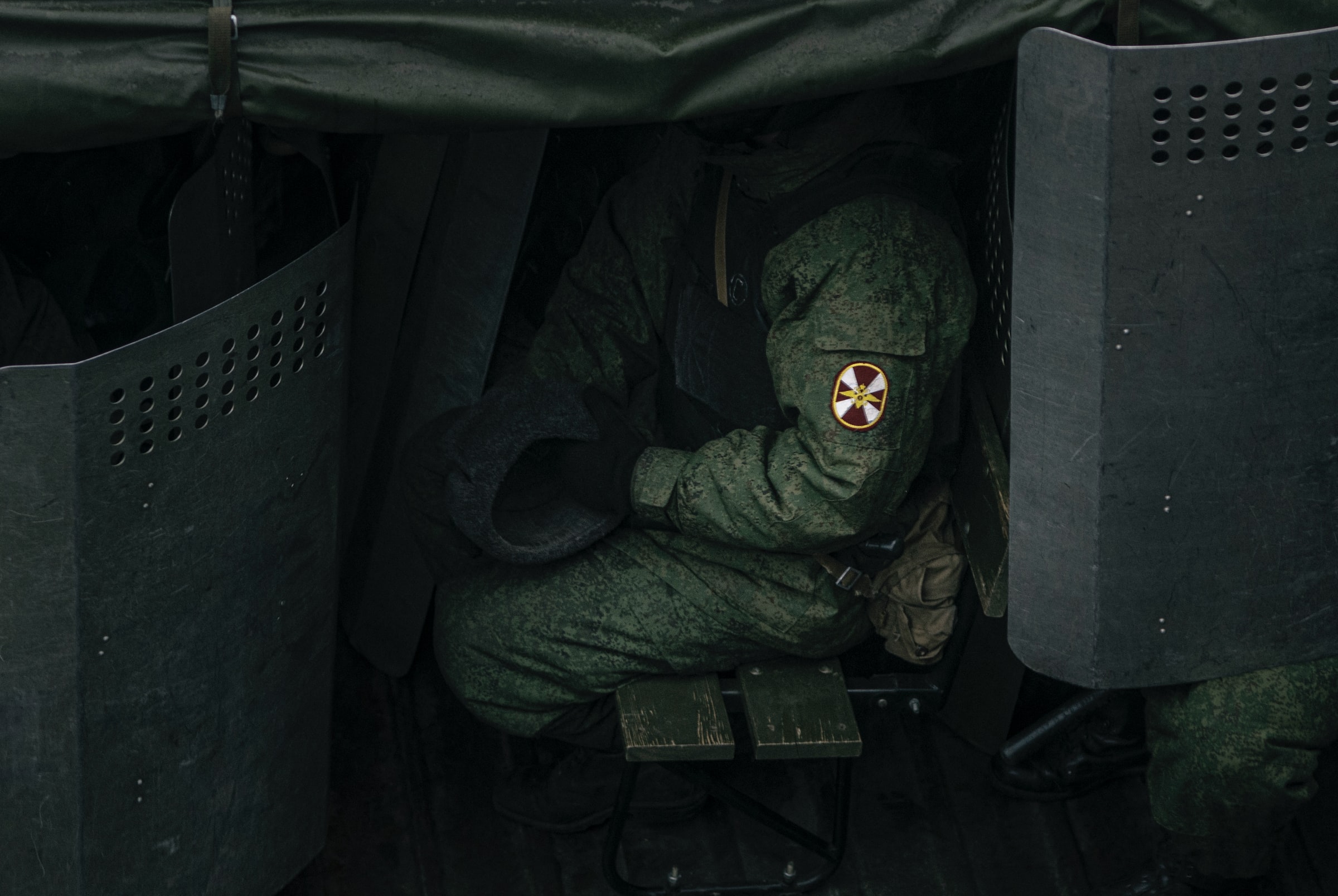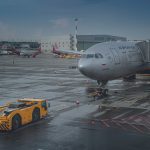The Russo-Ukrainian war that took the world by surprise
On February 24th, Russian President Vladimir Putin launched a ”special military operation” against Ukraine. In his own words the aim of the operation is to protect people who have been subjected to bullying and genocide for the past eight years. Putin also mentioned a demilitarisation and denazification of Ukraine. He stated that the Russian stance in case of external involvement would include an immediate response that will end with consequences ”that you have never encountered in your history”.
A Declaration of Independence as a Pretext for War
Just a few days before the invasion on Ukraine began, on February 21st, President Putin held a long and heated speech in which he recognised the independence of the two Moscow-backed separatist republics in the Donbas region. Namely, the republics of Donetsk and Luhansk. In his speech on Russian television, he stated that modern day Ukraine was entirely created by Bolshevik Communist Russia and that traditionally people living southwest of what was historically considered to be Russian land have called themselves Russians and Orthodox Christians. He also indicated that apart from Ukraine, the independence of other ex-Soviet republics can be questioned as well:
Divisions inside the Kremlin suggest that the aim of the recognition of Donetsk and Luhansk People’s Republics on February 21st was in fact quite different from what was presented by Putin himself. A few hours after his address of recognition of the two Republics’ independence, a security council meeting was held in Moscow. When asked about whether he supported the decision, Sergei Naryshkin, the head of Russia’s Foreign Intelligence Service, answered that he supported the Donetsk and Luhansk Republics becoming part of Russia. Putin, however, was very quick to point out that that wasn’t the subject of the discussion, since they were only discussing the recognition of the Republics as independent entities. Further discrepancies can be observed from the Kremlin spokesperson, Dmitry Peskov. When asked about the political situation after the ”special operation” in Ukraine was over, Peskov claimed that the Kremlin cannot participate in Ukrainian elections and that it’s a different country.
In the light of the declaration of independence of the Donetsk and Luhansk Republics Putin could have decided to intervene strictly in these regions, since he expressed a will to protect Russian citizens. However, the situation is much more complex than that. Furthermore, Naryshkin might have accidentally revealed the real intentions of President Putin to incorporate the two separatist regions into Russia. Whether this was something Putin had been planning for weeks or months remains a question of speculation. But what is clear are the different takes on Ukraine as a country, if even the Russian leadership cannot be sure of whether to recognise Ukraine as an independent country or not, political divisions in the Kremlin might become more visible as the war progresses. With the Kremlin’s declaration of launching a military intervention in Ukraine as a whole, Europe is now seeing war on a scale the continent has not seen since World War II.
A Cry for Help
On March 1st Ukraine’s envoy to the EU formally handed over a request for membership in the European Union. Ukrainian president Volodymyr Zelenskiy addressed the European Parliament the same day saying that his people, including those killed by missile strikes the very same day, were sacrificing their lives for European ideals in the fight against Russian forces. If Ukraine is to join the EU, the Commission has to give a positive assessment of the country’s potential candidature. This process can take up to 18 months, after which there would be a transitional period of indefinite length during which Ukraine would need to adopt the EU law in all of its scope.
Jens Stoltenberg, the NATO Secretary General has expressed that NATO stands in solidarity with Ukraine. NATO members have imposed sanctions against Russia, together with the EU. Some of the members have provided Ukraine with military support such as anti-tank weapons, air defence systems and other types of military equipment, humanitarian aid and financial support. Stoltenberg did however underline that NATO is not to be part of the conflict and that it will not send troops into Ukraine or planes into Ukrainian airspace. This signals that any potential military interventions to help Ukraine against Russian aggression will have to come either from NATO member states themselves or from the EU as a collective or from the individual member states – NATO will only intervene to protect and defend NATO territory.
The Refugee Situation and Reported Casualties
As of the 2nd of March, the Russian invasion has led to the death of over 2.000 civilians and destroyed infrastructure such as transport facilities, kindergartens, hospitals and civilian homes. According to the United Nations, more than 800.000 civilians have fled since the beginning of the war. The EU estimates that up to 4 million people will try to leave the country. The bloc has loosened its rules on refugees and says its member states will welcome the refugees to a larger extent than before.
The refugee situation at the Ukrainian borders with Poland, but also Romania and Belarus have however proved to be more problematic on another level. The treatment of African and Asian people who have tried fleeing the war in Ukraine have been reported as discriminatory. The Nigerian president, Muhammadu Buhari has expressed that the right to safe passage under UN convention should be guaranteed to anyone, regardless of the colour of their passport or their skin. The Nigerian President said citing reports that Ukrainian police had obstructed Nigerians from leaving Ukraine. Government officials from Ukraine and Poland have stated that all refugees are welcome, while adding that border officials were working through hundreds of thousands of cases. Amidst these statements, many have reported continuing challenges even after having passed into Poland.
The number of military casualties on both the Ukrainian and Russian sides are also very hard to assess. The Ukrainian defence minister Oleksii Reznikov claimed on the 1st of March that more than 5,710 Russian soldiers have been killed by Ukrainian forces since the invasion started on February 24th. Russia acknowledged cases of death and injuries among its soldiers on February 28th but claims that their losses have been considerably lower than in comparison with Ukrainian forces.
The Nuclear Option
Ukraine has also asked for NATO to introduce a no-fly zone over the Ukrainian airspace. This to prevent attacks or surveillance of Russian aircrafts. This is a problematic plea towards Western allies, as a no-fly zone over the country would mean that NATO forces would engage directly with any Russian planes spotted in the skies and shoot those down if need be. That is also why any military interference in Ukraine is a decision that needs to be carefully considered, as it will be perceived as a hostile move by the Kremlin.
The Russian president has ordered his military to put Russia’s nuclear deterrence forces on high alert, signalling he is willing to go to extreme lengths to achieve victory in Ukraine. The situation got even more serious as president Alexander Lukashenko of Belarus held a referendum in which he proposed changes to the constitution that would allow him to end Belarus’ status as a nuclear-free zone. Lukashenko’s side won the referendum, opening the way for a possible deployment of Russian nuclear weapons on Belarusian territory.
Ukraine, like most countries, does not have any weapon that matches the might of a nuclear one. After the fall of the Soviet Union, Ukraine found itself in possession of the world’s third-largest nuclear arsenal. So an agreement was made with the United States and Russia in 1994, called the Budapest Memorandum on Security Assurances. This agreement made Ukraine turn over its nuclear arsenal in exchange for those security assurances. However, the agreement is not an official treaty, it is not legally binding and it does not entail an enforcement mechanism. That is also why there are no clear promises with regard to a potential invasion from Russia.
Sanctions, Repercussions and Aid From the International Community
The European Union along with the United States, the United Kingdom and other allies have agreed to cut selected Russian banks from the SWIFT messaging system, a system which allows for transfers of money across borders. The aim of this exclusion is to cut Russia off from the international financial system and prevent the country from operating globally. A ban from this banking system will lead to delays in payments Russia receives for exports of oil and gas. It does not hinder Russia to get paid from other systems, such as China’s Cross-Border Interbank Payment System. The ban itself is a double edged sword, as it will also affect companies owed money by Russian actors. In addition, it will lead to disruption in several countries’ energy supplies. Europe depends on Russia for 30% of its gas supplies. Even though Washington has made clear that any bank sanctions will not disrupt the energy supplies, it remains unclear how this will work in practice. Keeping in mind the importance of energy exports to the Russian economy, it seems unlikely for now that Putin will decide to turn off the gas taps entirely. But as the invasion of Ukraine began on Thursday 24th of February, Gazprom shares experienced a 40% drop and there was a 30% rise in spot European gas prices, which suggests that the market is taking this threat seriously.
Further aid along with repercussions on part of the EU, adopted on February 28th include: a €500 million support package to finance equipment and supplies to the Ukrainian armed forces, a ban on the overflight of EU airspace and on access to EU airports by Russian carriers, new sanctions on individual persons and entities including freezing the assets of Vladimir Putin and Sergey Lavrov, the Russian Minister of Foreign affairs on February 25th.
A Very Uncertain Future Lies Ahead
Protests have erupted all over Russia as the war against Ukraine began on February 24th. Just six days later the police had already detained more than 6852 people, according to the OVD, an organisation that has been documenting crackdowns on Russia’s opposition for years. This organisation is one of the few which still operates in order to help those who are being persecuted by the Russian regime. As of 2nd of March, The head of the Investigative Committee was instructed to create investigative and operational groups to suppress anti-war protests. Furthermore, on March 4th the State Duma will meet to adopt amendments to a bill which can lead to up to 15 years in prison for people who spread news that are not in line with the Kremlin narrative on the actions of the Russian armed forces in Ukraine.
The ongoing war will no doubt lead to enormous financial and humanitarian losses on both the Ukrainian and Russian sides. It shows a complex web of issues that arose with the will to help Ukraine against the Moscow regime, from threats of using nuclear weapons to an enormous migration crisis.
Putin’s repercussions towards his own citizens show how the Russian president’s worst fear is his own people. With political divisions and sanctions, the pressure will eventually show us how much support Putin actually has for the war in Ukraine. It will be hard to stop him from pursuing his goals, and the most drastic scenarios could potentially include a Third World War if nuclear weapons are used. Even if Ukraine falls and Russia will take over their territory, it might not put an end to Putin’s plans of reshaping the world. Whatever the Western allies choose to do with regards to Ukraine, their own confrontation with Russian forces might be very likely. However, military- and humanitarian aid, along with sanctions, a strongly mobilised Russian opposition, and a fiercely determined Ukrainian population fighting for their existence as a nation, might prove effective enough to put an end to Vladimir Putin’s Russo-Ukrainian war.

Magdalena Kamont
Master student of the "International Administration and Global Governance" programme at the University of Gothenburg. Currently writing her master thesis on democratic decline in Poland. Former intern at Sida.





